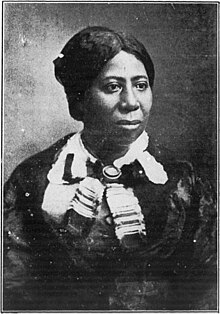10 Chicchan
Red Planetary
Serpent
As she melts upon myTongue
I swallow down the
full Moon whole
She settles in my Belly
while
I drink the Wine of
Kingdom come
She takes a silver Ride
inside
Where Flesh had been
until
The Container of a Woman’s Life
Fell beneath a surgeon’s
Knife
Scalpel cut the
Sinew and the Nerve
Creating painful Space –
My Womb is in the
Tomb
But even more is in
its Place
My progeny are Poetry and Prose
Conceived in the
Soul by Night –
Infants unnumbered
are borne
On shimmering Beams of blue Light.
©Kleomichele Leeds
Ida Stephens Owens is an American scientist known for her work with drug-detoxifying enzymes. She received her PhD from Duke University in 1967, making her one of the first two African Americans to receive a doctorate from the school.
Early life
Ida Virginia Stephens Owens grew up on a farm in Whiteville, North Carolina. Her mother died when she was six years old.
Education
Owens' early education was in segregated public schools. Owens then attended North Carolina College, now North Carolina Central University, graduating in 1961 summa cum laude in Biology (B.S.) and Mathematics (minor). In 1962, she began her Ph.D. studies in biochemistry and physiology at Duke University shortly after Duke racially integrated its graduate and professional schools. When she graduated in 1967, she became one of two first African Americans to receive a PhD from Duke University and the first woman to receive any degree in physiology from Duke.
Scientific career
After graduating, Owens held a postdoctoral position at the National Institutes of Health (NIH) focused on how drugs are chemically processed in the body. Owens then became an NIH researcher, working for the Laboratory of Developmental Pharmacology in the National Institute of Child Health and Human Development (NICHD). In 1981 her work evolved into the NICHD Section on Drug Biotransformation. Since 1988, Owens has directed NICHD's Section on Genetic Disorders of Drug Metabolism in the Program on Developmental Endocrinology and Genetics.
Scientific advancements
Owens' postdoctoral work sparked her specific interest in a critical group of enzymes, called glucuronosyltransferases (abbreviated UGTs), responsible for detoxifying numerous drugs, toxic chemicals, and other substances. She then designed methods to study genes that code for specific UGT enzymes. These methods allowed her to characterize UGT1A1, the gene coding for an enzyme in this family that processes the protein bilirubin, a breakdown product of hemoglobin, and to identify 12 other previously unknown and independent UGT enzymes.
Owens' research group has subsequently made multiple advancements regarding UGT enzyme biology. Her laboratory was the first to identify a genetic defect, in the gene UGT1A1, that leads to Crigler-Najjar syndrome. Crigler-Najjar syndrome is a disorder that disrupts normal processing and excretion of bilirubin, leading to jaundice. Owens' research group also identified that UGT enzymes must be activated before they can detoxify foreign chemicals and that in some cases suppressing these enzymes could enhance the effects of therapeutic drugs. Owens' laboratory found that activity of UGT enzymes can be lessened by kinase inhibitors and that protein kinase C and tyrosine kinase enzymes can alter the enzyme specificity, likely contributing to their ability to detoxify a wide range of foreign chemicals.
Honors
Owens received the 1992 NIH Director's Award and, in 2013, the Duke University Graduate School's first Distinguished Alumni Award.*
CHICCHAN
Kin 205: Red Planetary Serpent
I perfect in order to survive
Producing instinct
I seal the store of life force
With the planetary tone of manifestation
I am guided by the power of space
I am a polar kin
I extend the red galactic spectrum.
The Path, though unified, appears different to each person.*
*Star Traveler's 13 Moon Almanac of Synchronicity, Galactic Research Institute, Law of Time Press, Ashland, Oregon, 2018-2019.
The Sacred Tzolk'in
Muladhara Chakra (Seli Plasma)
























